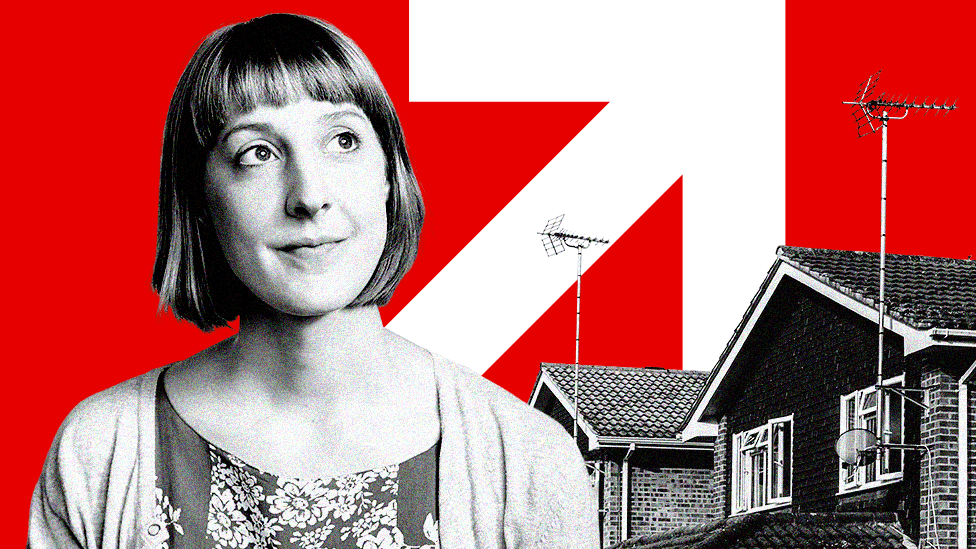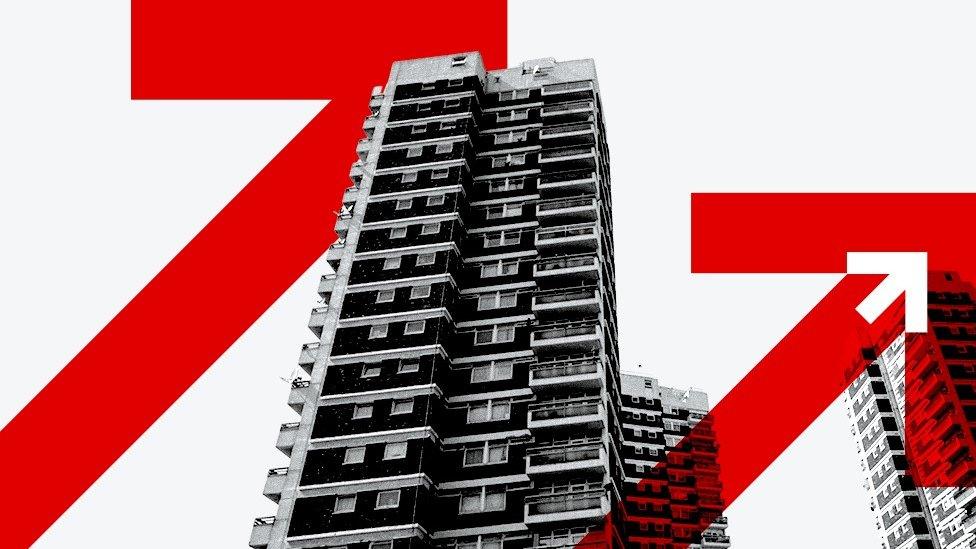Interest rates: No cut until 'solid evidence' price rises slowing - Bank boss
- Published
- comments
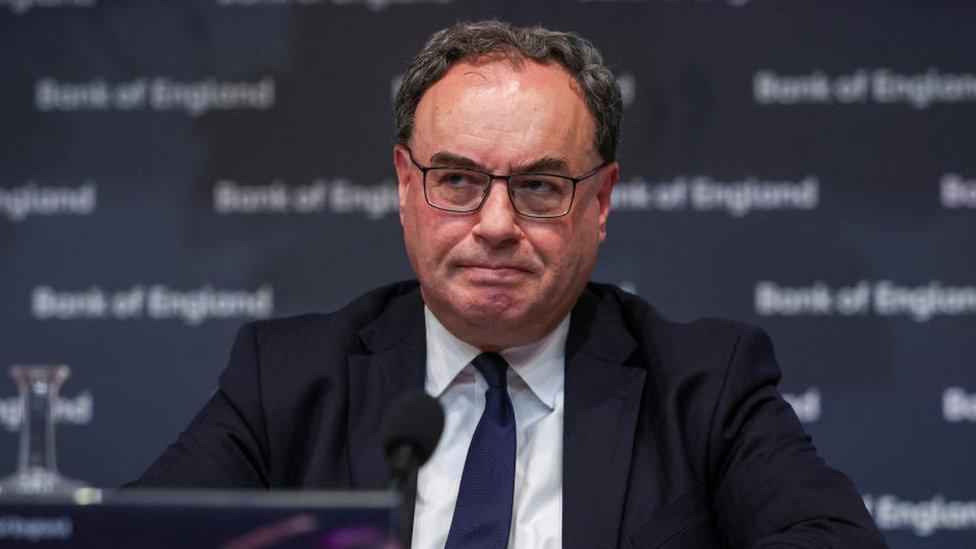
Interest rates will not fall until there is "solid evidence" that rapid price rises are slowing, the boss of the Bank of England has told the BBC.
Andrew Bailey said once both prices and pay are stable, then rates would drop.
His comments came after the Bank raised interest rates to a 15-year high of 5.25% from 5% on Thursday - the 14th increase of rates in a row.
The move will mean higher mortgage and loan payments for some, but should also mean higher savings rates.
The Bank said for the first time that interest rates would stay higher for longer in an effort to battle soaring price rises.
Mr Bailey said he would need more evidence that inflation was falling before cutting rates.
"What I mean by solid is that people can rely on it and say, I'm going to build that into my expectations, so that when prices are set, wages are set, people say yes I get it inflation's coming down," he told the BBC.
The Bank said rates would need to be "sufficiently restrictive for sufficiently long" to lower inflation, but it has not spelled out how long that will be, however some economists, such as Capital Economics, have predicted that interest rates would rise again in September to peak at 5.5% and will stay that way for a year.
"We know that inflation hits the least well-off hardest and we need to make absolutely sure that it falls all the way back to the 2% target," Mr Bailey said.
Inflation, which is the rate at which prices rise, is currently four times higher than the Bank's target at 7.9%.
The Bank has been putting up interest rates to try to slow price rises, with the aim of making it more expensive to borrow money and reducing people's spending.
Chancellor Jeremy Hunt acknowledged that a rise in interest rates would be "a worry for families with mortgages and for businesses with loans", but reiterated the government's aim to cut inflation.
However, the Bank's inflation forecasts have been incorrect in the past, with six of the last eight too optimistic.
Mr Bailey says it is now "more assured" that inflation will fall than in previous forecasts.
Before December 2021 when the Bank started to raise interest rates, they had been under 1% for more than a decade.

Peterborough hair salon owner Jo Bevilacqua says she understands the economics behind rate rises, but it is a "hard pill to swallow" given that her business is reliant on consumer spending.
"We are still in pandemic recovery mode. We don't want people to be spending less. Our livelihoods are in their hands," she says.
"If they are not spending money then we can't keep our doors open, pay our staff or pay our suppliers." Jo's own finances are not immune from the rates pain either. She moved onto an interest-only mortgage when her business was struggling.
"I need to be in a position where everything calms down to be able to re-mortgage. It comes to me as a three-pronged attack. There are my own mortgage payments going up, but there are also my staff and customers."
The Bank said the impact of its rate rises would begin to hit people and the economy harder next year, with growth continuing to be sluggish and smaller than it was before the pandemic for some time.
But it said the UK would avoid a recession.
A growing economy means there are more jobs, companies are more profitable and can pay employees and shareholders more. The higher wages and larger profits also generate more money for the government in taxes.
Rising food prices have been one of the biggest drivers of inflation, but the Bank said there was evidence that the increases were slowing, "albeit only gradually".
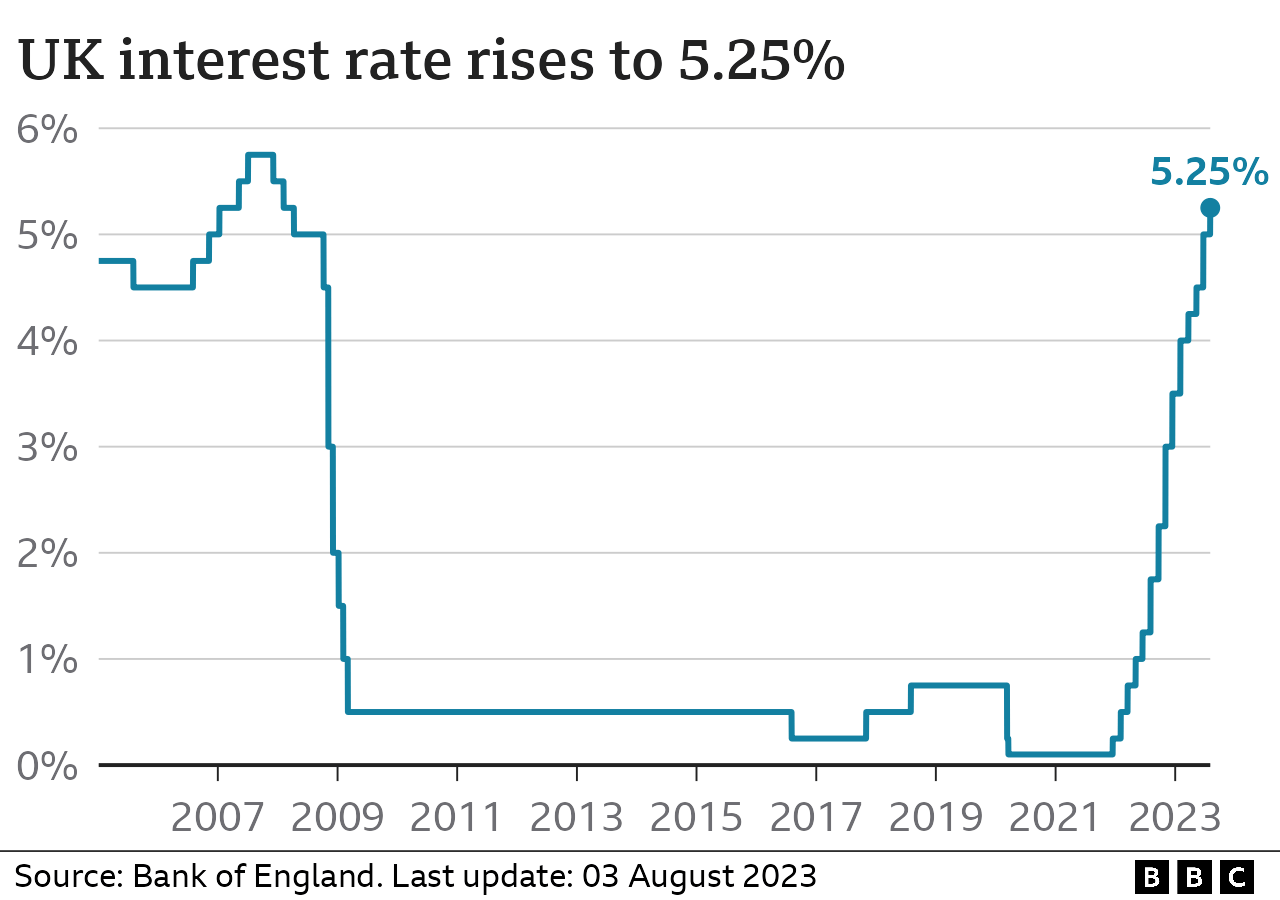
Mr Bailey said food price inflation had taken longer to slow than many people expected, adding energy was a major cost for food production.
Mr Bailey also said that businesses, in particular farms, had locked themselves in to higher prices for key products such as fertiliser because of the Russia-Ukraine conflict. Both nations are major fertilizer exporters and Mr Bailey said that "out of a concern about getting access to it" food producers "bought forward for longer".
He said also said he did not expect Russia's recent withdrawal from the grain deal with Ukraine to have a major effect on wheat prices, but added: "I think it is something we have to watch carefully."

What to do if I can't pay my debts
Talk to someone. You are not alone and there is help available. A trained debt adviser can talk you through the options. Here are some organisations to get in touch with.
Take control. Citizens Advice suggest you work out how much you owe, who to, which debts are the most urgent and how much you need to pay each month.
Ask for a payment plan. Energy suppliers, for example, must give you a chance to clear your debt before taking any action to recover the money
Check you're getting the right money. Use the independent MoneyHelper website, external or benefits calculators run by Policy in Practice, external and charities Entitledto, external and Turn2us, external
Ask for breathing space. If you're receiving debt advice in England and Wales you can apply for a break to shield you from further interest and charges for up to 60 days., external
Tackling It Together: More tips to help you manage debt

Additional reporting by Peter Ruddick

Sign up for our morning newsletter and get BBC News in your inbox.

Related topics
- Published3 August 2023
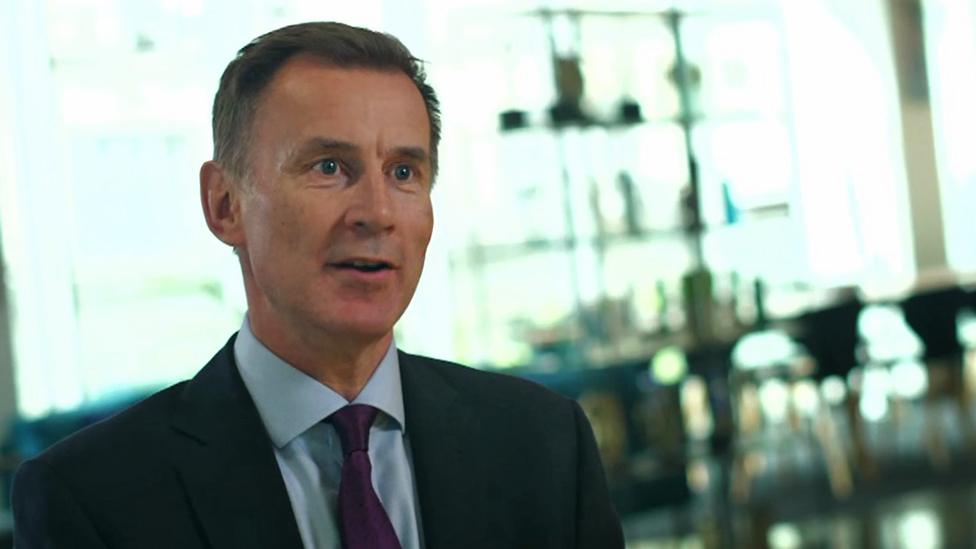
- Published3 August 2023
- Published8 January 2024
